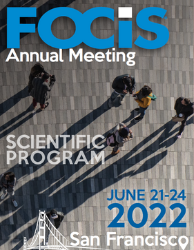Back
Basic Science of Immunology - Adaptive Immunity
Postnatal Depletion of Maternal Cells Shifts Splenic NK and CD8+ T Cell Profiles Toward Mature and Activated Phenotypes
Wednesday, June 22, 2022
4:45 PM – 5:00 PM PT
Location: Salons 5/6
Authors: Flore S. Castellan, PhD (Presenting Author) - The University of Tokyo; Naoki Irie, PhD (Co-Author) - The University of Tokyo
Naoki Irie, PhD – Associate Professor, The University of Tokyo
Abstract Text: The maternal cells transferred into the fetus during gestation persist long after birth in the progeny. These chimeric maternal cells have been hypothesized to promote the maturation of the fetal immune system in utero but there are still significant gaps in our knowledge of their potential roles after birth. To provide insights into these maternal cells' postnatal functional roles, we set up a transgenic mouse model to specifically eliminate maternal cells in the neonate by diphtheria toxin injection and confirmed significant depletion in the spleens. We then performed immunophenotyping of the spleens of two-week-old pups by mass cytometry to pinpoint the immune profile differences driven by the depletion of maternal cells in early postnatal life. We observed a decreased proportion of CD4+ T cells and naive CD8+ T cells and a heightened expression by NK cells and effector and memory CD8+ T cells of markers related to activation and maturation. We hypothesize these results to indicate a potential postnatal suppression of cytotoxic effector responses by maternal cells. Together, our findings highlight the immunological influence of maternal microchimeric cells postnatally, possibly protecting against adverse hypersensitivity reactions of the neonate at a crucial time of new encounters with self and environmental antigens.

